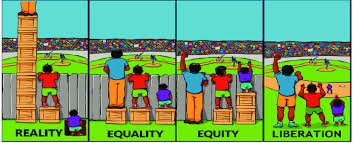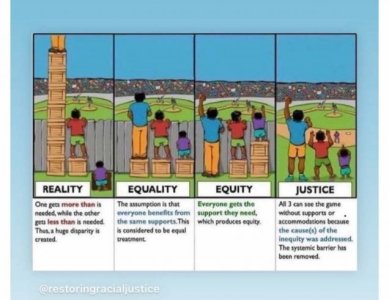Epilepsy seems like a developmental disorder that will likely still qualify.
But I guess nobody knows for sure. Regardless, it should qualify for some accommodation.
A diagnosis of epilepsy all by itself doesn't mean the person has need for accommodation.
ADA and accommodations are needs based, not diagnosis based.
Agreed… and I am not at all suggesting that some disabilities are worse or more deserving of accommodations than others.
But my understanding is that Disney created the DAS system for autism and similar disabilities.. they were sued after discontinuing the previous pass and then in court Disney proved that this new system was reasonable for those with neurological disabilities that needed this sort of assistance.
It seems as though they let it get out of hand by offering it for many other challenges and now that they want to pull it back in, the only way they really can, is to start limiting who gets it-
and I imagine that they are not likely to take it away from the disabilities they argued that they created it for?
Again, not in anyway saying that anyone does or doesn’t deserve accommodations. Just thinking that this might be why they are so careful to announce they ate “preserving it” for those with autism and the like.
Since I would think it could open up the potential for more litigation to win a case claiming you designed accommodations for a group and then take it away from that group .
There are a few differences between WDW and DL because of differences in things that were available at each. My in- person experience is WDW; the programs were similar, but there may be differences in how they worked for individual attractions. WDW traditionally has had more ways to handle people; most attractions had Fastpass (now
Genie+) and wheelchair accessible lines. Mostly because of space limitations and the age of the park,
Disneyland had/has less of both. Disney California Adventure Park has pretty much all wheelchair accessible attractions.
Guest Assistance Card (the program before DAS) was not primarily designed for guests with autism/developmental disabilities. It included stamps for various other disability related needs.
Attraction queues, in general, are designed to provide a steady stream on riders to the load area. Just looking at mobility, prior to the ADA, many of the queues were not accessible to guests with mobility aids or limitations. They often included stairs or were too narrow, so they used an 'alternate entry', which in most cases was the exit.
That also worked for people who had a problem with the queue itself. People with visible mobility needs whose needs were primarily mobility were not supposed to need GAC to use whatever was the accessible entrance. As lines were updated to be accessible, many guests needing accessibility didn't understand why they were sent to the exit for some rides and the regular line for others. There was a Moderator on another forum (no longer in existence) who wrote a long post about basically going into a 30 minute yelling match with a CM at a renovated attraction because she was being sent into the regular line, rather than the exit like she had used before. When the CM would not 'give', she posted that she went to Guest Relations and yelled at them for 20-30 minutes until they gave her the stamp she wanted.
The different stamps were confusing to everyone and (whether because of CMs giving in or guests making a scene and being demanding), eventually the largest group of guests with GAC probably had the 'alternate entry' stamp.
DAS, introduced in 2013, was also not primarily designed for guests with autism/developmental disabilities. It was designed for guests whose issues were with the actual waiting in the queue. The stamps for different accommodations were removed and 'moved' to asking the CM at the individual attractions for things like front row seating, avoiding stairs, etc. Guests whose primary need was mobility were supposed to qualify for DAS only if they had additional, non-mobility related needs.
I agree that the specific mention of autism is related to the past court case.
It will cut down on some due to them going to a third party to qualify. It also isn't all about getting rid of abuse but cutting down on the amount of guests using LL.
The majority of the information - including some people who have spoken to Disney's Disability Services - says that the third party medical company is NOT going to be doing the qualifying. It will remain Disney Cast Members. The third party will reportedly be doing training of the CMs who do the video calls, CMs at attractions and doing consulting
Then the problem is how can they know someone is lying about their DD if they can't ask for proof. Not like I have anything to hide, I carry proof around all the time, but I have never been asked about my disability once in parks after I received my DAS or equivalent program at other parks. But let's say they did start doing that, the person can just reiterate their disability and walk away essentially. All this new website statement is saying is other legitimate disabled people no longer can acquire DAS in attempts to limit the lies of others.
As has been mentioned many times, providing proof doesn't mean the person needs accommodations. Every diagnosis/condition is on a continuum. Some with the very same diagnosis have few needs and might not need any accommodations. Some might have a lot more issues and would need more assistance.
Asking for proof also implies that there is verification of the proof. The third party marketing group used by Universal is giving the illusion of verification, but I'm not sure they are doing anything other than spot checking, if that.
They ask for an email address, but health care providers/facilities can't share any personally identifiable information on email because email is not HIPAA compliant (including things like name, birthdate, address, NOT only health information). They also ask for the doctor's license number, but that is available online. And they ask for phone number, but calls dont go directly to the individual doctor; most people get a message that says call 911 for emergency and for other concerns, they will call you back within 24-48 hours. And, they may not talk to a third party unless they have signed authorization from the patient (I am a Health Care Provider).
Many people are reporting they got temporary approval within well less than 24 hours and permanent approval in 24.
This is what I thought as well, based on the original reporting. However, The Disney Dish transcript that was posted earlier seems to indicate otherwise, and Len had good sources:
The first bolded part could be interpreted in different ways. Third-party company is just verification, but the chat is with a Disney CM? But the second bolded part is more explicit - you'll have the chat with the company.
But he also says you can schedule the call 120 days in advance, which Disney's website clearly disagrees with, so I dunno...
If nothing, this highlights that Disney has been poor in releasing clear, useful info.
He is the only source reporting the bolded parts. Other sources, including people who have spoken with Disney Disability Services have been specifically told it will be Disney CMs on the call, not a third party and that the third party will be doing training and consulting


